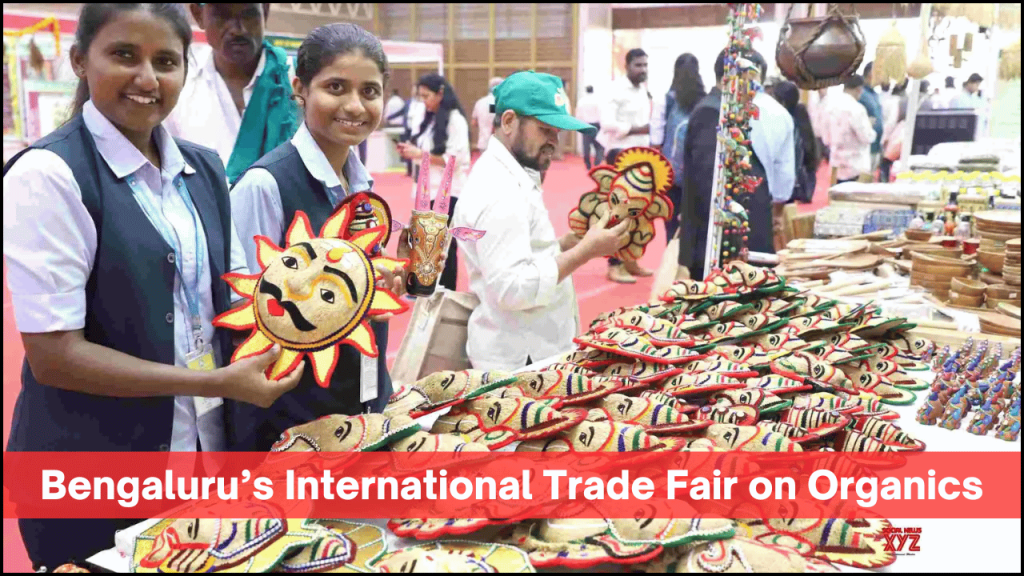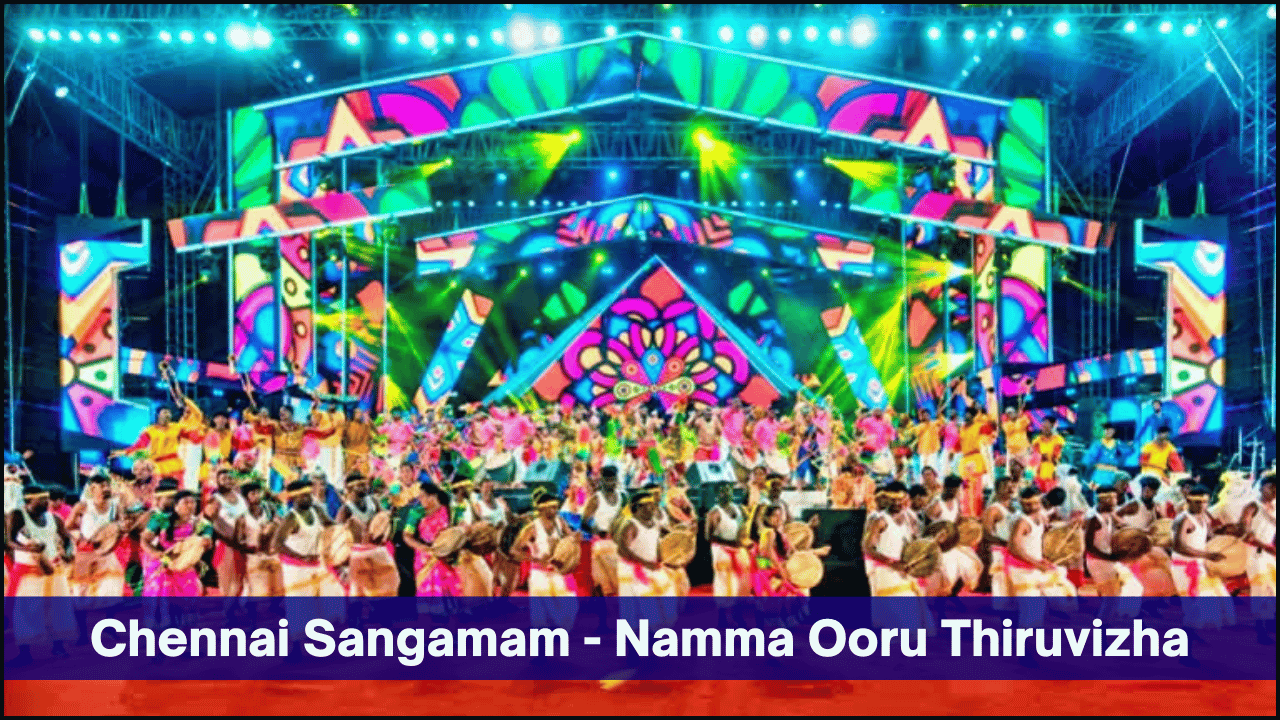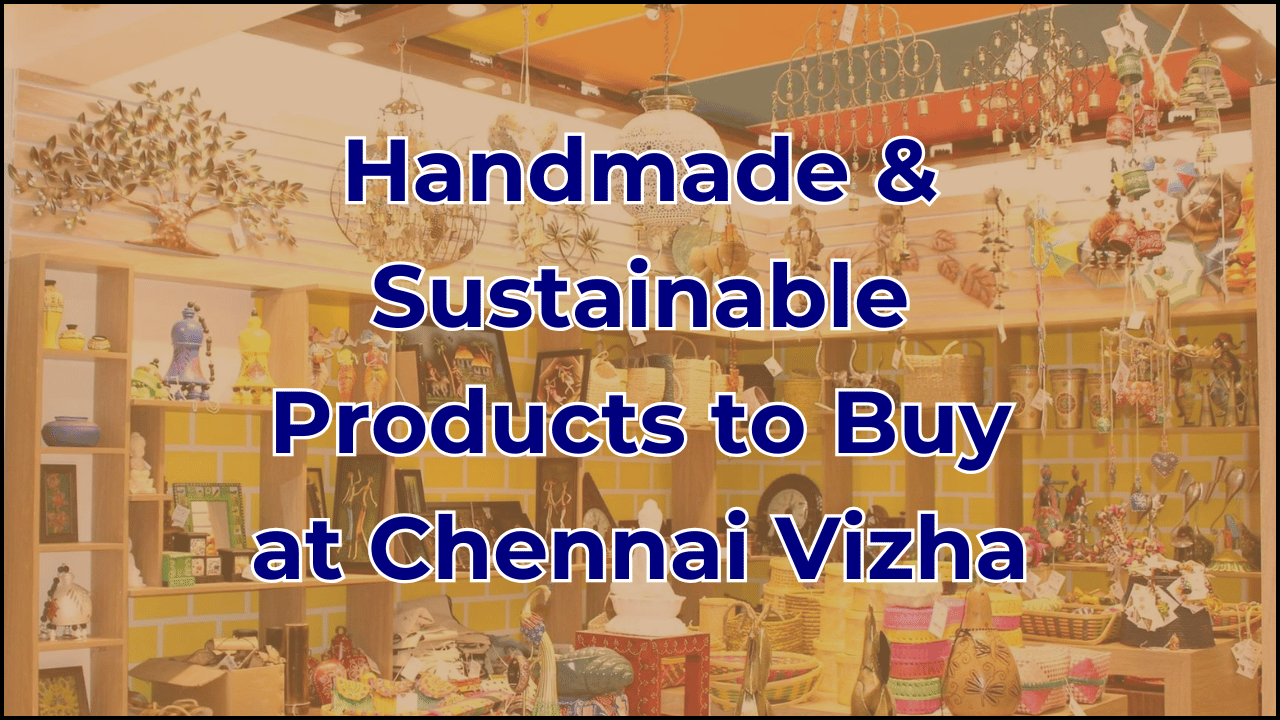
Bengaluru’s International Trade Fair on Organics is one of the most important events for organic farming and sustainable living in India. The fair brings together farmers, traders, scientists, and consumers who are interested in organic products and eco-friendly lifestyles. Every year, this event helps in promoting organic farming, increasing awareness, and creating business opportunities for organic entrepreneurs.
Table of Contents
Importance of the Trade Fair
- Bengaluru has emerged as a key city for organic farming movements in India.
- The International Trade Fair supports organic farmers by giving them a platform to showcase their produce.
- Organic farming promotes health, environmental safety, and sustainable development.
- The fair connects producers with buyers and encourages discussions on policy, certification, and organic practices.
- Government bodies, private companies, and NGOs actively participate in this event.
Objectives of the Trade Fair
- Promotion of organic farming practices in India.
- Awareness creation among the general public regarding the benefits of organic products.
- Business networking for farmers, companies, and exporters.
- Education on organic certification, sustainable farming, and health benefits.
- Introduction of new technologies in organic agriculture.
Event Highlights
| Feature | Description |
|---|---|
| Event Name | Bengaluru’s International Trade Fair on Organics |
| Location | Palace Grounds or Tripuravasini, Bengaluru |
| Frequency | Annual |
| Duration | 3 to 4 Days |
| Key Participants | Organic farming, eco-living, and sustainable practices |
| Main Focus | Organic farming, eco-living, sustainable practices |
| Organizing Body | Department of Agriculture, Government of Karnataka (in many editions) |
| Number of Stalls | 150+ exhibitors from India and abroad |
| Entry Fee | Usually free or nominal |
Main Attractions
- Organic Food Stalls: Organic vegetables, fruits, grains, and spices attract a lot of attention.
- Eco-Friendly Products: Stalls display biodegradable bags, bamboo products, herbal cosmetics, and more.
- Workshops and Seminars: Sessions on composting, terrace gardening, and water conservation are conducted.
- Farmer-Scientist Interaction: Farmers interact with experts to learn better organic techniques.
- Cultural Events: Folk music, dance performances, and food tasting events entertain visitors.
- Kids’ Activities: Special corners for children focus on environmental awareness in fun ways.
Participant Categories
| Category | Examples |
|---|---|
| Farmers | Individual farmers, cooperatives, and self-help groups |
| Entrepreneurs | Organic brands, start-ups, export companies |
| Institutions | Families, students, chefs, and eco-conscious individuals |
| NGOs | Environmental and rural development organizations |
| Government Bodies | Agriculture departments, certification agencies |
| Consumers | Families, students, chefs, eco-conscious individuals |
Topics Covered During the Fair
- Organic certification and its importance
- Soil health and natural fertilization methods
- Organic pest management techniques
- Packaging, branding, and marketing of organic products
- Export opportunities and international standards
- Climate change and sustainable agriculture
- Women’s empowerment in organic farming
Impact on Organic Movement
- Farmers receive direct feedback and better rates from consumers.
- Small organic brands gain visibility and reach new markets.
- Knowledge sharing increases awareness and adoption of organic practices.
- Government policies are discussed, and suggestions are made.
- Media coverage spreads the message of green living.
- Youth participation encourages future sustainable thinkers.
Past Events Summary
| Year | Venue | Key Highlights |
|---|---|---|
| 2023 | Palace Grounds | 200 stalls, national participation, focus on climate-resilient farming |
| 2022 | Tripuravasini | Launch of organic mobile app, millet-based recipes workshops |
| 2021 | Virtual (due to COVID) | Online webinars, digital product showcases, training sessions |
| 2020 | Palace Grounds | Focus on Zero Budget Natural Farming (ZBNF), women farmer awards |
Success Stories from the Fair
- A farmer from Tumakuru increased profits by connecting directly with organic stores in Bengaluru.
- A start-up selling organic honey received bulk orders from hotels and resorts.
- Women’s self-help groups formed organic spice packaging units after attending the fair.
- A university introduced organic farming in its syllabus, inspired by the trade fair sessions.
Challenges Discussed at the Fair
- Lack of awareness among farmers about certification.
- Difficulty in getting fair prices in remote areas.
- High competition from non-organic products.
- Supply chain and logistics issues in transporting perishable organic goods.
- Need for more government subsidies for small organic farmers.
Future Plans and Vision
- Expansion of the fair to include international organic brands.
- Introduction of live demonstration farms within the venue.
- Digital tools for farmer registration and networking.
- Year-round activities like regional fairs and mobile exhibitions.
- Policy advocacy for better infrastructure and support for organic farming.
Final Analysis
Bengaluru’s International Trade Fair on Organics plays a key role in India’s green revolution. The event acts as a bridge between rural farmers and urban consumers, between tradition and innovation. Every year, this fair contributes to making organic food a lifestyle choice and encourages the development of a cleaner, healthier, and more sustainable future.
By focusing on community, education, and business, the trade fair builds a strong foundation for the organic movement in India and beyond.





